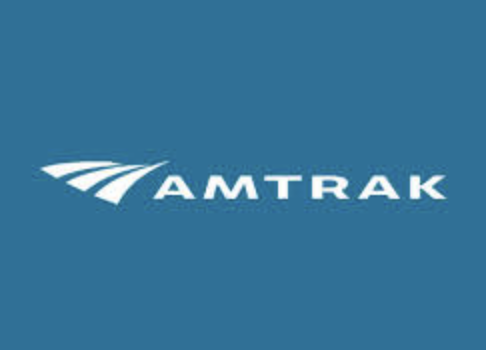

By Tommy Nguyen
WASHINGTON, DC – Amtrak’s request to the Transportation Security Administration (TSA) to start screening rail passengers again using a federal master terrorism watchlist is raising questions regarding civil liberties and rights concerns.
According to a U.S. Department of Homeland Security (DHS) privacy impact document obtained by the Hearst Television National Investigative Unit, Amtrak has made the request hoping to see if known or suspected terrorists have been riding the rails.
The program would compare personal passenger information, which may later include “publicly available social media,” to the government’s terrorist screening database, as a part of the Amtrak Rail Passenger Threat Assessment which has not been previously reported.
If the TSA finds any matches, the agency would then provide Amtrak with statistical and anonymized results that would not include passenger names, at least for this initial stage.
While airline passengers can choose to opt out of the government’s watchlist simply by not flying, Amtrak rail passengers will not have that option because the screening will initially use “several months” of past travel on the busy Northeast Corridor, according to the threat assessment privacy document.
Also as noted in the document, the 9/11 Commission report stated that, while aviation remains a possible target, “opportunities to do harm are as great, or greater, in maritime or surface transportation.”
As far back as 2007, Congress raised the possibility of a security watchlist program for Amtrak and even proposed a vetting system more than a decade later. In 2020, Amtrak announced the increase of police officers on board due to a spike in crime
Saira Hussain, a staff attorney at the Electronic Frontier Foundation and a civil liberties advocate, expressed her fear as she learned about the new program from the National Investigative Unit.
The watchlist screening program, as viewed by civil liberties advocates, is compromising too much liberty in the name of increasing safety.
Furthermore, in the Privacy Impact Assessment, DHS discloses “a risk that limited information provided by Amtrak will result in inaccurate watchlist match results,” indicating that mistakes during the matching process are possible.
While the assessment tries to claim there will be “no impact” on individual passengers’ privacy whatsoever, it is unclear if the consequences on travelers could go beyond TSA and Amtrak.
DHS also noted that the information gathered could be provided to “other law enforcement agencies pursuant to established routine uses.”
“It can increase the chances of them facing some really negative outcomes when it comes to contact with the law enforcement,” Hussain said in an interview, expressing her “absolute” worry about the effects those mistakes can have on individuals.
Hina Shamshi, director of the American Civil Liberties Union’s (ACLU) National Security Project, issued a statement this week regarding Amtrak’s plan.
“From our decades of work on the watchlisting system, we know it’s a due process nightmare and prone to error,” Shamshi stated. “The standards the government uses to place people on its massive master watchlist are vague, overbroad, and based on secret evidence.”
Shamshi also indicates the program might worsen racial discrimination because individuals on the watchlist are “disproportionately people of color or immigrants, and can be wrongly stigmatized as terrorism suspects with no notice of their placement on the list or a meaningful opportunity to challenge it”
Jay Stanley, a senior policy analyst also at ACLU who reviewed the Privacy Impact Assessment at Hearst’s request, described the program as a “classic example of mission creep.”
The TSA and Amtrak have declined the requests for an interview about the program, as well as ignored a detailed list of inquiries about the soon-to-be-implemented plan on some of their passengers.
Transportation Communications International, the biggest union of Amtrak’s employees, urged the government to begin screening passengers against DHS’s no-fly list as a result of the January 6 attack on the U.S. Capitol.
Khalid Turaani, who successfully reversed his inclusion on a watchlist, stated he “understands the security needs” for transportation security, “without a doubt.”
However, due to his past experience with the screening, Khalid believes “there must be some transparency measures” in place, which would be the key to unlocking the program’s fullest potential.






I said this 15 years ago when that statement came out: “You can use an airplane as bomb, and you can bomb a train, but you can’t use a train as a bomb.”
I’m not sure I see the connection.
They ought to have a “watchlist” regarding those who can board public transit (e.g., city buses and subway systems), but not for the reason implied in this article.